Made in the USA Labeling Rule – What There is to Know About Increased Enforcement Within the Federal Trade Commission
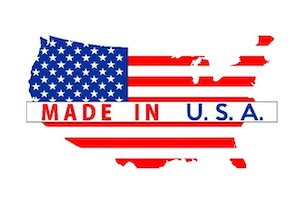
The Federal Trade Commission (“FTC”) has recently begun placing more of an emphasis on Made in the USA (“MUSA”) labeling violations. A MUSA violation occurs when a company labels its product with “Made in the United States” or “USA Made Products,” among other similar phrases, when in fact the country of origin (“COO”) of the […]
Sonora Lithium
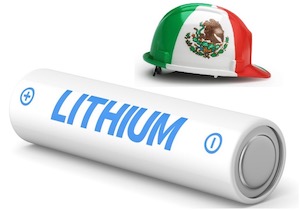
In November 2022, Mexican Foreign Secretary Marcelo Ebrard and U.S. Special Presidential Envoy John Kerry announced at COP27[1] in Sharm el-Sheikh important steps forward to address the climate crisis. Representatives from both countries, including the state governor from Sonora and his cabinet, continued discussing important topics which resulted in agreements to cut emissions, increase investment, and promote […]
Update: Quartz Surface Products from China – New Certification Requirements for Shipments from Malaysia

On October 21, 2022, the Department of Commerce, International Trade Administration (The DOC) published its Final Scope Ruling on Malaysian Processed Quartz Slab. The DOC determined that imports of quartz slab manufactured in the People’s Republic of China (China) and processed in Malaysia are covered by the scope of the antidumping duty (AD) and countervailing […]
U.S. Bill Introduced to Move Export Controls From Commerce to DTSA. Is This a Good Idea?
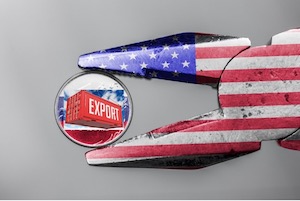
On October 28, 2022, on the eve of the mid-term elections, a bill was introduced in the House that, unless you are an export control/compliance nerd, most would not have given it any thought. This bill, H.R. 9241, called the “Prioritizing National Security in Export Controls Act of 2022” was introduced by Representative Jim Banks, (R-Indiana) and co-sponsored by Robert Wittman, (R-Virginia), and Gregory Steube, (R-Florida).
Can the U.S. Mitigate Digital Assets Fraud While Fostering Innovation?

INTRODUCTION This article will review the options the White House has outlined for regulation and oversight of the digital assets sector, based upon a set of reports issued in the last six months.[1] The collapse in November 2022 of FTX, the second largest cryptocurrency exchange, has precipitated calls for better oversight for digital assets. This […]
Complying with BIS’s Advanced Computing and Semiconductor Manufacturing Rules – Knowledge, Due Diligence, and Technology Thresholds

U.S. industries supplying Chinese facilities with products, equipment, software, and technology used in semiconductor development and production are subject to regulatory controls under the Export Administration Regulations (“EAR”). New rules published by the Department of Commerce’s Bureau of Industry and Security (“BIS”) on October 13, 2022, 87 FR 62186, imposed additional license requirements regarding the […]
The FDA is Cracking Down on Supplement Manufacturers

Enter any of the more health-oriented grocery stores in the U.S., like Whole Foods, and you’ll see aisles upon aisles of supplements —everything from multivitamins to fish oil to protein powders. The supplement industry is a $61 billion market and has seen steady growth over the past decade. People who want designer supplements can even […]
Section 301 Update: Four-Year Review, Exclusions, Litigation, and the Future of China Tariffs

China Tariffs are here to stay – for now. The Biden Administration continues to defend the Trump-era tariffs on goods from China with little guidance as domestic inflation climbs steadily. Meanwhile, 2022 has been a busy year for the Office of the U.S. Trade Representative (“USTR”). The agency was instructed by the Court of International Trade to provide further written justification for the Section 301 Actions for Lists 3 and 4a in the wake of the agency’s obligatory four-year review of each tariff action.
Tuas Megaport in Singapore, An Upcoming Model to the World in Port Operations, and soon to be Light Years Ahead of the Globes Largest Ports
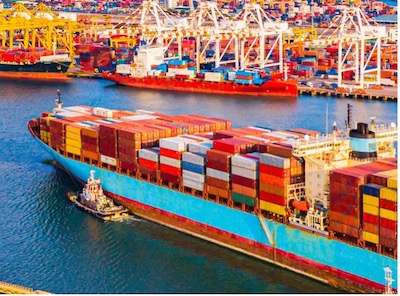
The Maritime Port Authority (MPA in Singapore) is currently in the process of building the Tuas Port, which will be the biggest port in the world with a capacity of 60 million TEU’s (twenty-foot equivalent units) once it is fully completed in 2040. PSA, the company taking the lead in the construction has implemented a four-phase process, with the first phase officially opening this September 2022, with three berths being operational.
Antidumping Duties – Can I Obtain a Separate Lower Rate?
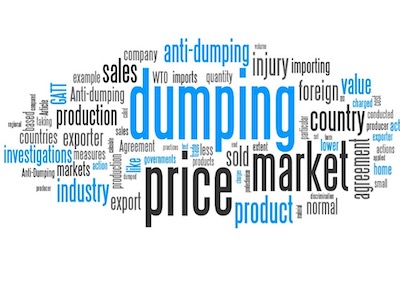
In Antidumping (AD) investigations, the U.S. Department of Commerce (DOC) typically selects only a limited number of exporting entities for review, with these exporters referred to as “individual” or “named” respondents. Selection of these respondents is based on U.S. Customs and Border Protection Data, and in most cases due to limited DOC resources, will consist of only a few of the largest exporters.
